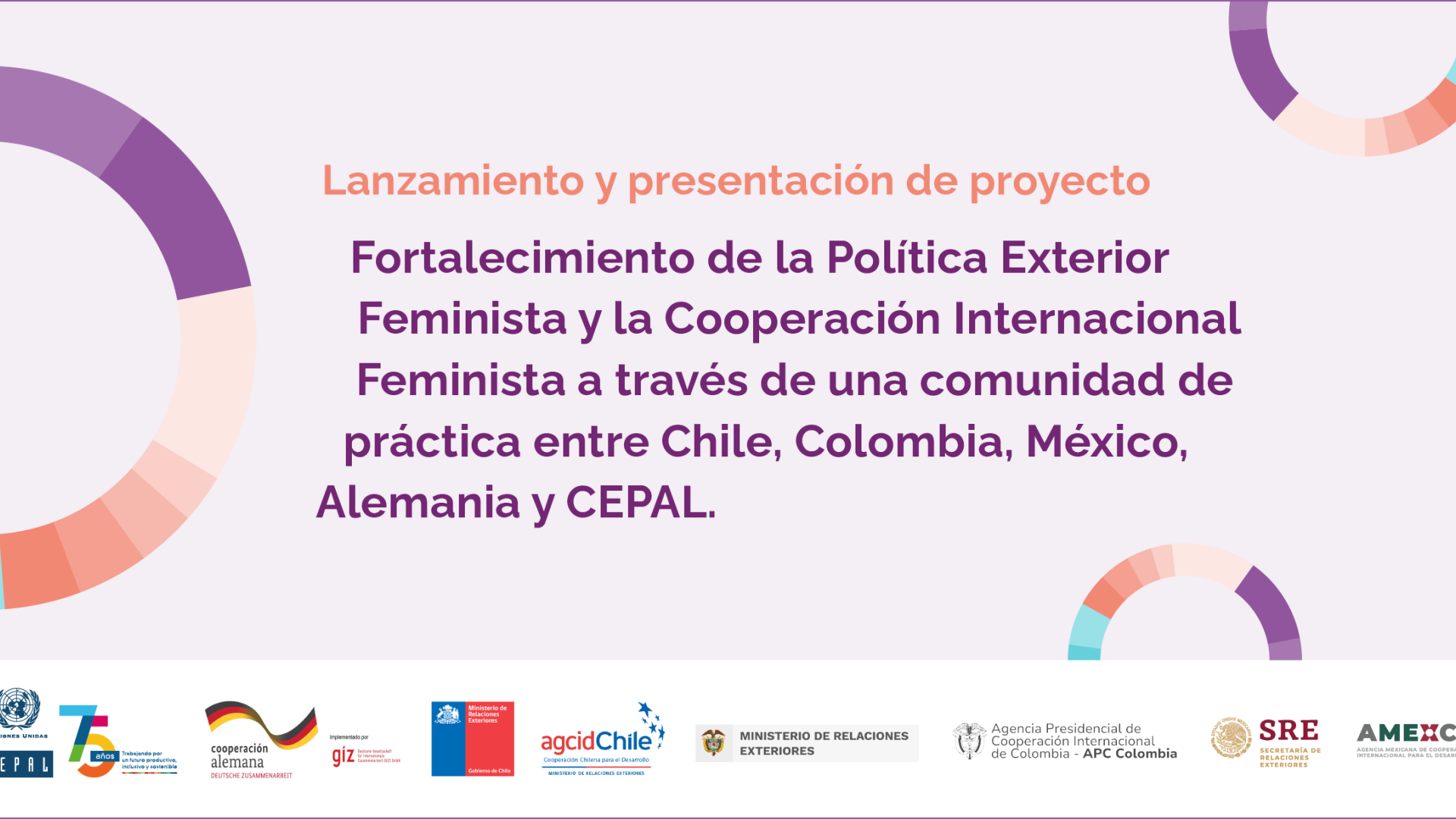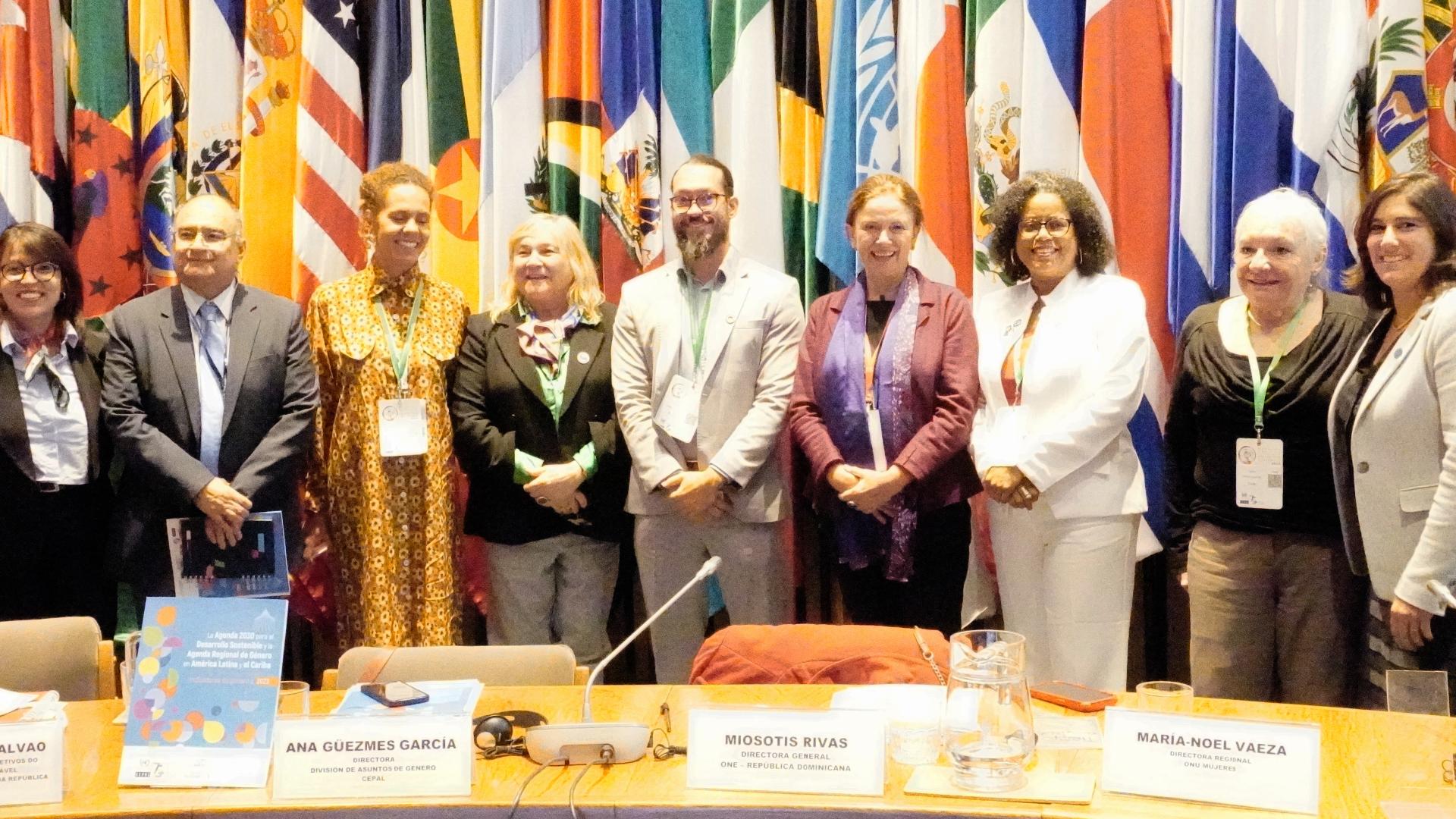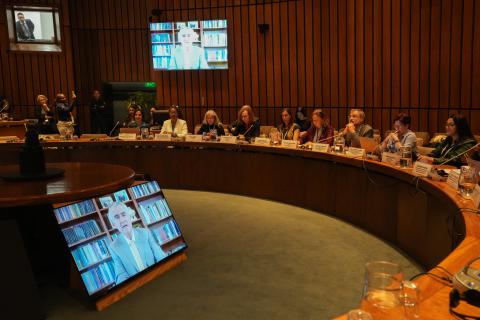Briefing note
Chilean President Michelle Bachelet; the First Vice-President, Minister of the Presidency and spokesperson for the government of Spain, María Teresa Fernández de la Vega; and the President of Ecuador, Rafael Correa, took part today in the inauguration in Quito of the 10th Regional Conference on Women in Latin America and the Caribbean, the region's leading intergovernmental forum for public policy analysis from a gender perspective. The Conference is convened by the Economic Commission for Latin America and the Caribbean (ECLAC), with support from the National Women's Council (Consejo Nacional de las Mujeres, CONAMU) of Ecuador.
The opening address was delivered by Ecuador's Minister of Foreign Relations, María Fernanda Espinosa, who highlighted the need for women to be present in all aspects of public life and noted that until Latin America takes responsibility for its 200 million poorest residents, neither equity nor democracy is possible.
In his address, ECLAC Executive Secretary José Luis Machinea stated that the two main issues of the Regional Conference - political participation and gender parity in decision-making processes at all levels; and women's contribution to the economy and social protection, especially in terms of unpaid work - are not only critical components of gender policy, "but also to sectoral policies and those that have impact on economic growth, poverty alleviation and social cohesion."
Machinea underscored the need for women to be represented in all spheres of decision-making. He highlighted the advances made in many countries in terms of women's presence in the Executive Branch and ministerial posts traditionally held by men.
The ECLAC Executive Secretary warned of the discrimination that women still face in the labour market. "The current sexual division of labour is a factor that clearly hinders progress towards equality," he said. "Policies that promote shared responsibility between men and women in caring for household members, especially children, must be formulated as a matter of priority, as well as the need for greater public action (by the State and business sector), in providing care for the sick, the elderly and the disabled."
The First Vice-President, Minister of the Presidency and spokesperson for the government of Spain, María Teresa Fernández de la Vega, expressed her government's support for all public policies to promote equality and autonomy for Latin American and Caribbean women.
Millions of women worldwide face the injustice of unequal treatment as second-class citizens because of their sex. "Today, the most visible and dramatic faces of inequality continue to be gender violence and the feminization of poverty," she said, adding that the issues under discussion at this Regional Conference constitute the foundations of a new social and economic development model for nations, "if we hope to build a just and dignified society."
Chilean President Michelle Bachelet spoke of the many ways in which women are still excluded in Latin America and in Chile, calling for continued efforts to achieve the victory of a more inclusive society.
"The greatest revolution of the 20th century is women's equality and entry into the professional and labour worlds, and the corresponding changes in family life," she stated.
President Bachelet stressed that women remain under-represented in politics. She used the occasion to make a series of announcements, including the presentation of draft legislation to that would require political parties to present a minimum number of women candidates to congressional and municipal elections. "When a woman enters politics, she changes. But when many women enter politics, it is the political arena that is transformed," the Chilean President said.
Bachelet announced proposals for greater public financial support of women candidates to office and incentives for political parties to put gender equality into practice among their adherents, through the balanced access to and exercise of posts and public responsibilities. She also announced the creation of a new pension for Chilean housewives, to be distributed as of next year.
"Equality cannot be simply a dream," said Bachelet. "Equality is built through women's tenacity and perseverance."
Ecuador's President Rafael Correa welcomed the delegations and reviewed the advances in gender equality made in that nation over recent months. He made special reference to the discrimination faced by domestic workers throughout Latin America, whose wages are far below those of other workers. "We cannot talk about development or social justice while this type of gender discrimination persists," he said.
See also:


